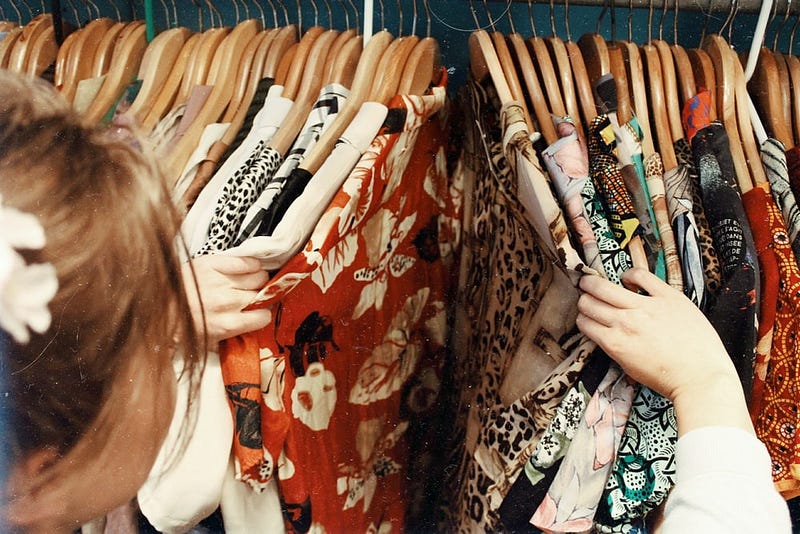Embracing Maximalism: Why I Choose to Keep My Stuff
Written on
Chapter 1: The Allure of Minimalism
The clean and organized homes showcased by minimalist influencers certainly present a compelling vision. I’ve contemplated the possibility of adopting a minimalist lifestyle, believing it might lead to a more stress-free existence. However, the challenge lies in actually implementing such a drastic change.
My upbringing in a family of maximalists has ingrained in me a deep-rooted attachment to my possessions. I've attempted to declutter my space by sorting through my closet, donating books, and tidying up various corners of my home, yet I find myself emotionally unable to part with these items. Does this imply that I am destined to live as a maximalist, overwhelmed by my belongings?
When it comes to my collection of books, I simply can’t let go. Each book represents hours of joy and investment; they are integral to my identity and I take pride in displaying them on my shelves. The cookware and dishes? They are essential, especially when I know that someday I'll need that muffin tin for a delicious cupcake recipe. My hobbies also require their tools—removing my board games, adult coloring books, watercolor paints, or even my cherished Nintendo Switch would be heartbreaking. While I may not use every item daily, each one sparks creativity when inspiration strikes.
While minimalists argue that I don't need these “unnecessary items,” I respectfully disagree. Their perspective suggests that my clutter defines me as disorganized. But does having a collection of beloved items make me a lesser person? Am I at a disadvantage for cherishing my belongings?
Though I recognize the value in critically evaluating my purchases—a lesson learned from minimalists—I refuse to feel guilty for the things I choose to bring into my home. The peace of mind that comes from knowing my space is not in need of decluttering is appealing, but I also find joy in surrounding myself with items that resonate with me. My varied interests naturally lead to a diverse collection of possessions.
Capsule Wardrobe Dilemma
The concept of a capsule wardrobe is intriguing, but adhering to a single style isn’t for me. One day, I might opt for leggings and a cozy sweater; the next, a polka dot dress; or even a Metallica T-shirt paired with ripped jeans. Each outfit reflects a different facet of my personality.
How can I limit my wardrobe to just sixty pieces and still express myself fully? Sticking to a “Minimalist Chic” aesthetic every day would not only feel disingenuous, but it would also leave me feeling unfulfilled.

Chapter 2: Rethinking Capsule Pantries
Furthermore, minimalists seem to extend their preferences to my pantry, advocating for the concept of a capsule pantry. While having a limited selection might simplify dinner decisions, it would only serve to amplify feelings of guilt when grocery shopping. Is it a crime to want both Oreos and cardamom?
Reflecting on our ancestors, it’s evident that they lived more simply out of necessity. But did that simplicity equate to a better quality of life? Did a 15th-century woman truly enjoy a simpler existence by wearing the same dress and consuming the same meals daily? Wouldn’t a range of choices have enhanced her daily experience?
A Personal Choice
I understand the satisfaction that comes with an organized space, but I also find immense joy in having the right item at hand to fit my mood or creative impulse. So to the minimalists out there, I appreciate your perspective, but I’m choosing to embrace my identity as a maximalist.
Thank you for taking the time to read my thoughts! If you found this piece insightful, consider following for more reflections.

In the first video, "Let's Talk About Toxic Minimalism & How It's Okay To Have Stuff," the host discusses the pitfalls of extreme minimalism and the importance of personal connection to our belongings.
The second video, "How Minimalism Got Toxic: The Dark Side," explores the downsides of minimalist lifestyles and the pressures to conform to these ideals.